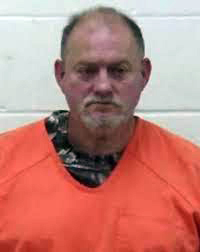
EDITORS’ NOTE: Sanctity of Human Life Sunday in the Southern Baptist Convention is Jan. 18.
EULESS, Texas (BP)–After waiting four hours, Marisa (not her real
name) nervously followed the assistant into the doctor’s office. There,
she would keep her Thursday appointment to abort the life of the baby
growing inside her womb. A 28-year-old divorced mother of three, Marisa
had firmed her resolve. Her pregnancy was the result of being raped. In
her mind, her situation fit one of the “unless” clauses in her pro-life
beliefs. Haggard and distraught, she merely wanted to terminate the
pregnancy and move past the trauma.
Marisa was told she would be given a standard sonogram before the
doctor’s exam. The sonar images would reveal not only how long Marisa
had been pregnant, but also which procedure the doctor would use as well
as how much to charge.
The assistant offered a concerned look when she finally captured
an image of the baby squirming inside Marisa. She summoned the doctor
who evaluated the pictures and signaled his decision to treat the
mid-term pregnancy as full-term. He then turned off the monitor, denying
Marisa’s request to view the image of her growing baby.
The assistant left. Marisa sat alone with the abortionist. After
referring to a scale extracted from a desk drawer, he said, “Your
procedure will cost $2,000 if you do it on Monday. The fee will increase
each day you wait.”
“Why can’t we do it right now?” Marisa asked, frightened and
despairing.
“This procedure takes three days, due to fetal development,” he
said. “And I don’t do this on Sundays.”
His last words sounded very peculiar to her. “What does he do on
Sundays,” she wondered. Does he go to church? Does he play with his
children? What kind of man is he, to be able to do this every other day
but Sunday? And what kind of person am I to be sitting here with him
now?
Marisa quickly left the abortion clinic, not knowing her
destination. She considered driving to her mother’s, then to a
girlfriend’s home. Instead, she found herself pulling into the parking
lot of the Crisis Pregnancy Center across the highway from her work. She
had passed it every day, aware of its presence, but never considering
its options. This day, she entered and asked a single question.
The young mother, reaching out hopelessly to a stranger behind the
receptionist’s desk, simply asked, “Can you show me what my baby looks
like?”
The Crisis Pregnancy Center (CPC), a ministry of First Baptist
Church, Euless, Texas, was indeed able to show Marisa her baby with a
sonogram and model of the baby’s development. Unlike the Dallas
abortionist, CPC provided options emphasizing life possibilities rather
than deadly despair. Each month, CPC welcomes an average of 200 young
women with situations similar to Marisa’s, embracing them in love and
offering them hope.
CPC began in February 1984, in response to then-pastor Jimmy
Draper’s sermon, “The Death of America.” That sermon called the Euless
congregation to do more than condemn those who choose abortion. The
message challenged them to respond in love and in action.
Paula Odom, CPC director and involved since the ministry’s
inception, said the Lord was at work from the beginning and that
positive results were immediate. “In the first month, we had 16 girls
visit. The first one wasn’t pregnant, but she did pray to receive Christ
as her Savior.”
Word of the CPC quickly spread and it has twice moved to
accommodate its need for more space. CPC now operates with a pool of
almost 45 volunteers. It offers clothing and food for babies and
expectant mothers and provides point-of-contact counseling, Bible study,
witnessing and referrals to Christian adoption agencies and Christian
professional counselors.
Odom noted the CPC also offers counseling to men dealing with
pregnancies and abortions. “For every woman who has had an abortion or
is considering one, there is a man who is affected, too.”
The ministry has quickly grown to become a vital outreach of First
Baptist. Claude Thomas, pastor of the Euless congregation since 1991,
said the CPC’s connection to the church is vital and integral. “On the
most basic level, our church believes in the sanctity of human life, as
described in the Book of Psalms and demonstrated in the lives of
Jeremiah — who was called from within the womb — and Jesus Christ. Our
strong pro-life beliefs and the CPC’s operation both exist out of those
convictions,” he said.
Thomas said of the approximately 2,275 women who came to the CPC
in 1996, 725 were pregnant. Of those, 550 indicated they would carry the
babies to term and 11 planned to offer their babies for adoption. Odom
noted the success could actually be higher, since tracking the final
decision is often difficult because clients often use only first names
or false names when they arrive for counseling.
“Nothing brings us a greater joy than when a woman, who we thought
was going to have an abortion when she left, returns with a baby in her
arms. We rejoice those times,” Odom said.
Thomas said he believes the CPC’s success is a result of
committed, nonjudgmental volunteers who express God’s unconditional love
and biblical truth. “People come in telling us they feel lonely,
confused, hurt, angry and shamed. They need care, communication of truth
— biblical truth — a bathing of love and ministry,” he said.
“Anywhere from 50 to 100 women pray to receive Christ as a direct
result of this ministry in any given year,” Thomas continued. “Our
volunteers take advantage of the Evangelism Explosion classes the CPC
offers and take seriously opportunities to share the good news of
Christ’s forgiveness. They willingly and eagerly communicate how the
gospel speaks to the future.”
The message of forgiveness touches a deep need in the lives of
women who suffer from the guilt of Post Abortion Syndrome (PAS), Odom
said. “We see women who have been shackled with guilt for as long as 10
years because of abortion. They were told that ‘it’s not really a baby,’
but every mother deep down inside knows that it was. These women never
had the opportunity to appropriately grieve for the death of their baby.
Our counseling to them is really a Bible study. To see PAS women freed
from guilt when we share the gospel and they receive Christ is truly a
glorious joy.”
Odom said the CPC is effective because it focuses on having a
local presence, advertising in the Yellow Pages and in local school-
related papers. “We give these women counseling that they do not receive
at other relief outlets. We give them the information to make the
best-informed decisions. We do all we can to help these women choose
life.”
Thomas and Odom agree patience is essential in beginning a CPC
ministry, and prayer and vision are vital. “For this to be a successful
ministry,” Thomas said, “the church must make it a great priority,
praying to understand what its proper role should be — either heading
up a CPC or supporting a CPC in cooperation with other area churches.”
Said Odom, “When a church catches fire to minister to crisis
pregnancies, the urge is to start immediately. They should realize it
sometimes takes six months to a year to acquire funding, location,
provision and education to equip the ministry appropriately.”
Churches interested in starting a CPC should visit other churches
with CPC ministries to see what works and what does not, Thomas said.
Odom added Andy Merritt, a minister of Edgewood Baptist Church,
Columbus, Ga., travels nationally, teaching churches how to begin CPC
ministries. Also, the North American Mission Board offers training
through its Alternatives to Abortion Ministries office, at 1-
800-962-0861. “These steps allow a CPC to have a necessary, stable
foundation,” Odom said.
Odom and Thomas also noted CPC ministry can be reduced to simple,
basic elements. The ministry changes the lives of the parents and saves
the lives of their unborn infants. The ministry says much about the
church, Thomas said. “This ministry loudly proclaims, ‘What we say we
believe, we demonstrate in love.'”
Odom concurred. “Everything boils down to God. As a ministry of
the church, as a ministry to these people, we show them what is best and
what is right. We show each woman her Lord and present her with the
gospel. Then the Holy Spirit will go to work within her and she can have
an encounter with Christ.”
Justin (his name has been changed to protect his identity),
Marisa’s four-month-old baby, laughs readily and smiles at his mother
and strangers alike. He is alive, healthy and happy. Though he doesn’t
know it, he owns a future full of promise. Marisa entered the CPC scared
and hopeless. After sharing her problems with Paula, who mostly
listened, Marisa left, feeling a peace she had “never before
experienced.”
“I left knowing God would take care of me and that I was going to
deliver this baby. He took care of my fears along the way. I wasn’t sure
if I could love Justin if he looked like the man who raped me. God gave
me the ability to love him because I was so filled with God’s love,” she
said.
All the “unless” clauses have been removed from Marisa’s pro-life
stance. “The abortion issue is very clear to me now,” she said. “Before,
I had ‘but’ or ‘if’ conditions. Now I see very clearly Satan’s part in
it all. I am no longer deceived by his lies or by the propaganda of the
abortion industry.”
Marisa added, “The crisis is now over. God is still strategically
placing people in my life to show me that he loves and cares for Justin
and me. God continually gives me assurance I made the right choice. I
had tough questions for God and he stepped up and answered them all. I
am at peace and Justin is my perfect baby. Through the work and prayers
of the Crisis Pregnancy Center ministry, God took care of my troubles.”
Reprinted from the January 1997 issue of SBC LIFE, published by the Southern Baptist Convention’s Executive Committee.














